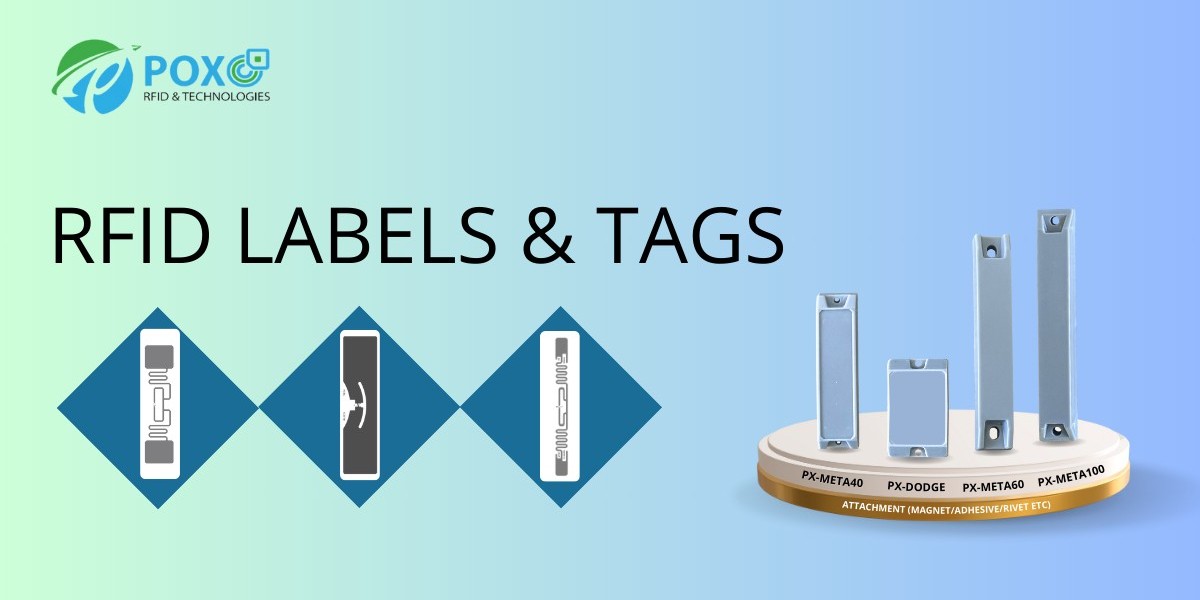Business is fast-paced in today's business world, and companies are constantly looking for a more innovative way to stay ahead. One of the advances that is becoming harder and harder to work without is RFID tags. These little gadgets, full of immense possibilities, are revolutionising the way businesses track and organise inventory and assets, among other applications. But what is it about RFID tags that is driving such remarkable success? It's diving into RFID and finding out how it's shaping the future of supply chain management.
So, Exactly What Are RFID Tags?
RFID tags (Radio Frequency Identification) are essentially tiny electronic devices that contain data and can transmit that data to a receiving antenna using radio waves. Unlike conventional barcodes, which must be read by a laser scanner within inches or a few feet of the label, RFID tags can be read from yards away. This gives them an astonishing degree of success, and it's little wonder that they are becoming increasingly popular in the business world, where companies need to be able to track vast amounts of things to prevent them from getting lost or stolen.
RFID tags consist of two main components: a microchip that stores information and an antenna that transmits that information to a reader. One of the reasons for this is that it doesn't require line-of-sight like a barcode - the benefit of RFID. Whether it's sitting on a shelf, in a box or moving through a warehouse, RFID tags can be scanned without a line of sight, eliminating an otherwise time-consuming process for businesses.
How RFID Tags are Revolutionising Supply Chains
Let's be real for a moment — supply chain isn't always a walk in the park. Opinions expressed by Entrepreneur contributors are their own. Tracking inventory, shipments, and assets is painful as a business grows. This is where RFID tags can come in really handy.
One of the most significant victories is that of inventory control. In the past, checking stock levels has , for the most part, required workers to scan the goods or count them manually. This was manual work and not only slow but also error-prone. RFID tags, however, enable immediate, real-time updates and it also reduces the likelihood of errors and can offer businesses a far more accurate understanding of their stock.
On top of this, RFID tags introduce a level of transparency into the supply chain that was difficult to attain earlier. Using RFID, companies can follow goods every mile of the supply chain—from the factory floor to the eventual retail shelf. Be it for monitoring shipments while in transit or inspecting stock in a warehouse, RFID offers more supervision and makes it possible for manufacturers to identify potential concerns in advance and then react quickly.
The Role of POXO in the RFID Revolution
With the RFID world in complete expansion, companies like POXO are proving instrumental in enabling businesses to maximise the potential of RFID. POXO provides state-of-the-art RFID products which are convenient to implement into your operations, no matter what industry you are in. With a focus on security, scalability and ease of use, companies can maximise the value of RFID tags without the learning curve.
If businesses want to improve their processes and increase efficiency, POXO has the latest technology, RFID systems, that allow you to automate processes such as inventory tracking, asset management, and data collection. This means fewer manual mistakes, quicker workflow and better overall day management.
The future of RFID Tags: What is next?
RFID is soon to undergo even more exciting developments. With the price of RFID tags decreasing and the technology being more widely adopted, we should see it being utilised in many different industries in the future. The potential is limitless — from increasing inventory accuracy and minimising theft to creating a better customer experience and making supply chains more responsive.
In the next few years, RFID tags will be used more and more for business processes. Businesses that adopt this technology now will be better poised to succeed in the future. And with trailblazers such as POXO leading the charge, companies can confidently make the next move towards a leaner and more innovative supply chain.
Conclusion
Applying an RFID tag to the supply chain is no longer a trend—it is a game changer. With real-time tracking, better inventory visibility, and enhanced transparency, RFID is enabling businesses to be well-organised and competitive. Thanks to forward-thinking enterprises such as POXO, the rise of RFID solutions has been simpler than ever to embrace. So, if you're a small company or a massive corporation, it's apparent that you need to be using RFID tags to succeed in the modern competitive market.






